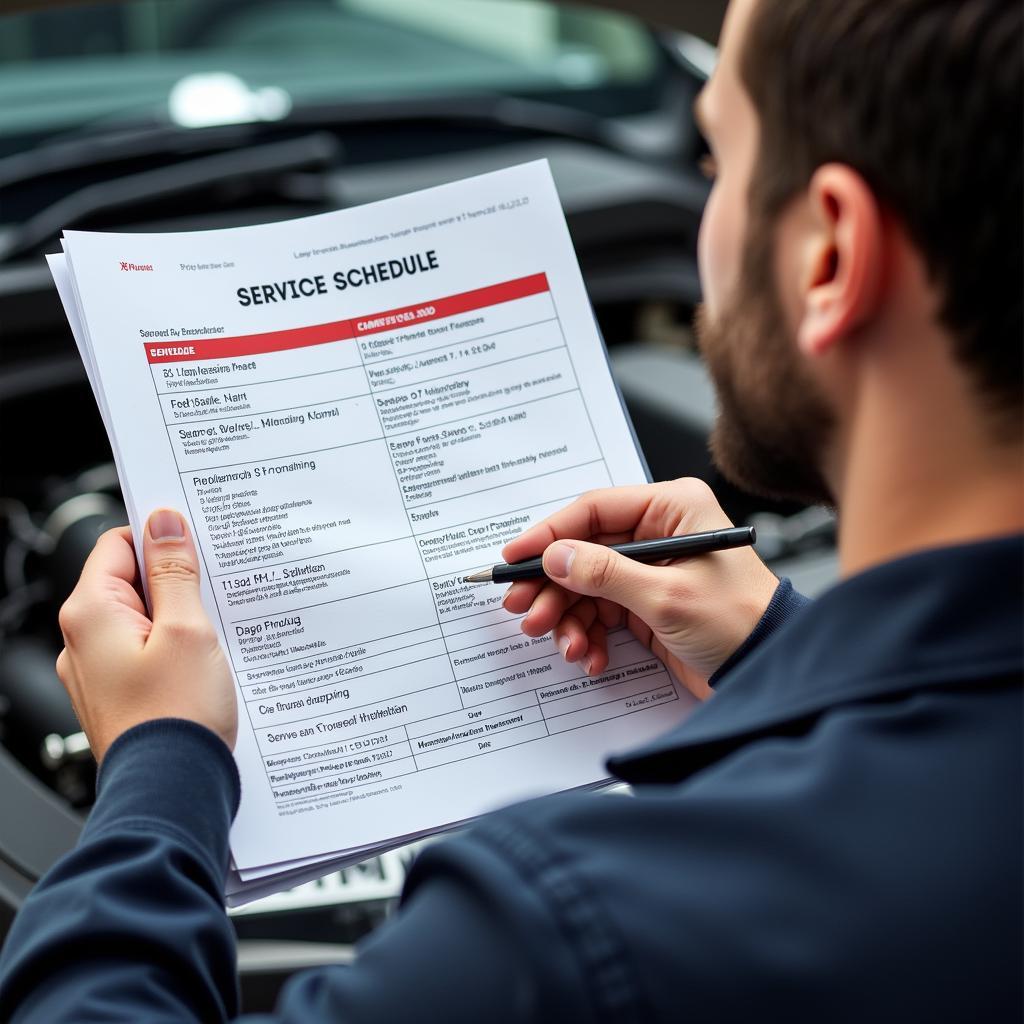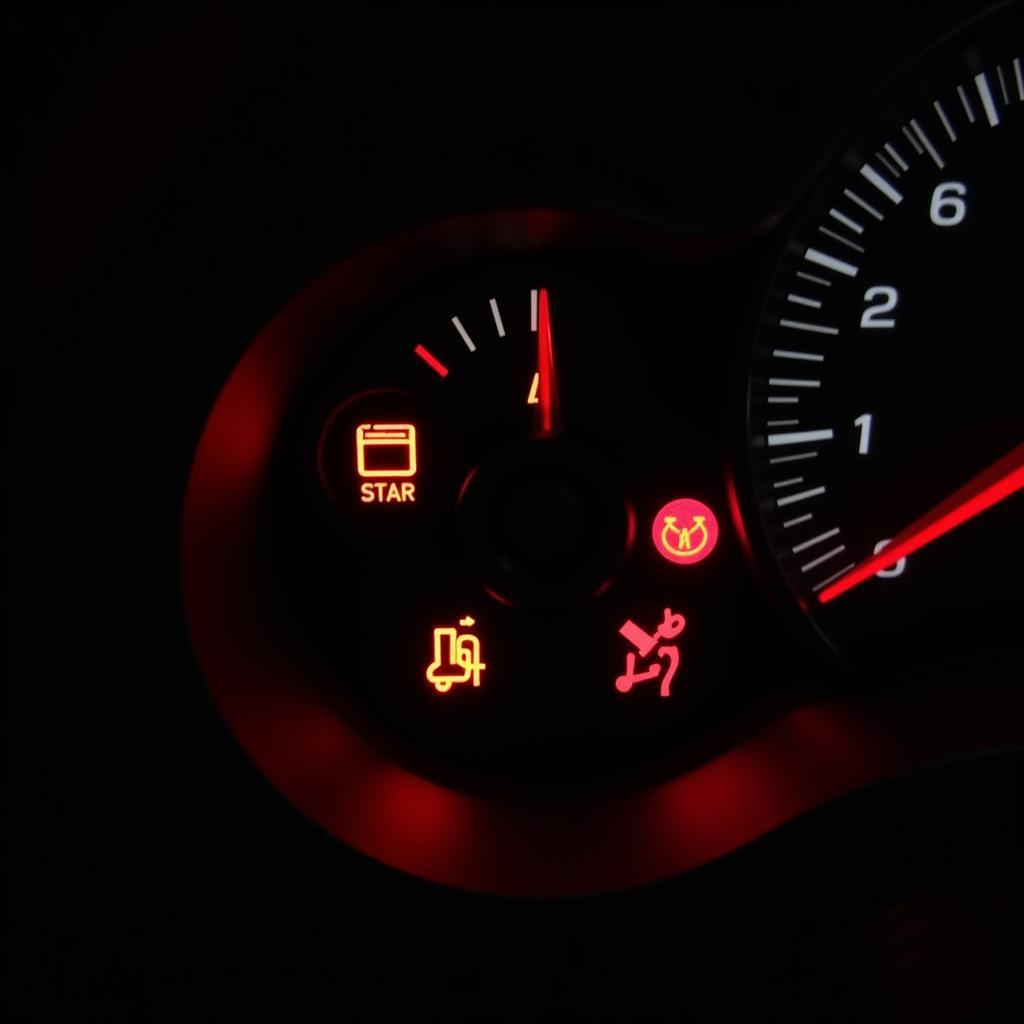How Often Does My Car Need a Service?
Knowing how often your car needs a service can be confusing. Between manufacturer recommendations, mileage milestones, and those pesky dashboard lights, it’s easy to feel overwhelmed. Don’t worry! This guide will break down everything you need to know about car service intervals, ensuring your vehicle stays in tip-top shape.
 Car Service Schedule
Car Service Schedule
Understanding Car Service Intervals
Car service isn’t a one-size-fits-all situation. How often you should service your car depends on several factors:
- Manufacturer Recommendations: Your car’s owner’s manual is your holy grail for service intervals. It outlines specific mileage or time-based schedules for various maintenance tasks, tailored to your car model.
- Driving Conditions: Frequent city driving, towing, or driving in extreme weather conditions can put extra strain on your vehicle, requiring more frequent servicing.
- Driving Style: Aggressive driving habits like rapid acceleration and hard braking can also necessitate more frequent maintenance.
- Vehicle Age: Older vehicles might need more frequent check-ups and part replacements due to wear and tear.
 Car Service Warning Lights
Car Service Warning Lights
Decoding Service Intervals: What to Expect
Car service typically falls into a few main categories:
- Oil Change: This is the most frequent service your car needs. While older recommendations were every 3,000 miles, modern vehicles with synthetic oil often go 7,500 miles or even longer between changes. Consult your owner’s manual for guidance.
- Interim Service: Usually occurring every 10,000-15,000 miles, this service includes an oil change, tire rotation, and a comprehensive inspection of essential components like brakes, fluids, and belts.
- Full Service: Performed annually or every 20,000 miles, this comprehensive service includes everything in an interim service plus more detailed checks and potential fluid flushes.
where is a good place to get your car serviced
Beyond the Basics: Additional Service Needs
Beyond the standard service intervals, certain components might require attention based on usage or wear:
- Brakes: Listen for squeaking or grinding, feel for vibrations, or notice pulling to one side? These are signs your brake pads might need replacing.
- Tires: Regularly check your tire pressure and tread depth. Uneven wear patterns could indicate alignment issues.
- Battery: Most car batteries last 3-5 years. Have yours tested regularly, especially in extreme climates.
“Modern cars are equipped with sophisticated sensors that can detect potential issues early on,” says automotive expert John Smith, lead mechanic at ABC Auto Services. “Regular servicing allows us to address these issues before they escalate into major problems, saving you time and money in the long run.”
 Mechanic Inspecting Car Engine
Mechanic Inspecting Car Engine
Missing Service Records? Don’t Panic!
If you’re unsure about your car’s service history, a trusted mechanic can help determine what services are due based on your car’s current condition and mileage.
[what if my car does not have compete service history](https://carserviceo.com/what-if-my-car-does not-have-compete-service-history/)
Prioritizing Preventative Maintenance
Sticking to your car’s service schedule might seem like an added expense, but it’s an investment in your vehicle’s longevity and your safety.
“Think of regular car servicing like visiting your doctor for check-ups,” adds Smith. “Early detection and preventative measures are always better than dealing with major issues later on.”
how much is a service for my car
How Often Does My Car Need a Service? Key Takeaways
Ultimately, the frequency of your car’s service needs depends on various factors. By following the manufacturer’s recommendations, being mindful of your driving habits and conditions, and addressing any warning signs promptly, you can keep your car running smoothly for years to come. Remember, a well-maintained car is a safe and reliable car.
Need help finding a trusted mechanic in your area? where is car service history can help!

